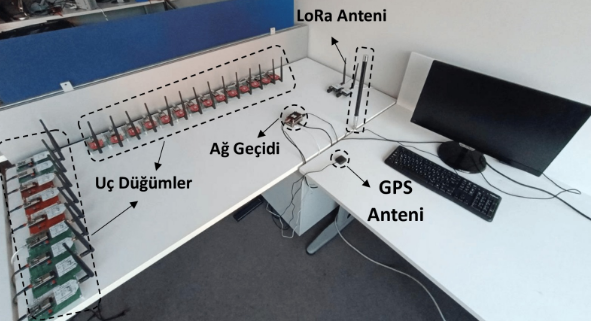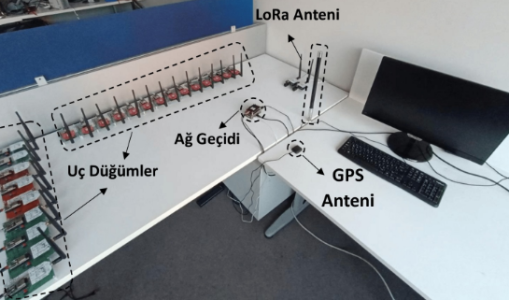Duty Cycle Compatible Fresh Data Transmission with LoRa
Low Power Wide Area Networks (LPWANs) such as LoRaWAN are widely adopted in Internet of Things (IoT) applications due to their low cost, long range, and scalability. However, strict duty cycle regulations in Europe and other regions limit how often devices can transmit, creating a significant challenge for applications that require fresh and timely information delivery.
This work implements and evaluates a Duty-Cycle Compliant Threshold ALOHA (DCCTA) protocol for LoRa-based IoT systems, specifically designed to optimize the Age of Information (AoI) under duty-cycle constraints. Unlike traditional random access protocols, DCCTA introduces controlled idle periods between transmissions, ensuring compliance with regulatory restrictions while still maintaining data freshness.
We developed a LoRaWAN-based prototype system using RAK831 gateways, RAK3172 end nodes, and ESP32 microcontrollers, implementing both feedback-enabled and feedback-free transmission scenarios. Simulation and experimental results consistently show that skipping feedback yields lower AoI by reducing delays, making it the preferred approach in large-scale IoT deployments. Comparisons with other slotted ALOHA variants demonstrate that DCCTA achieves superior performance in maintaining information timeliness without violating duty cycle limits.
This research highlights DCCTA’s potential as a practical and scalable solution for age-sensitive IoT services, particularly in scenarios such as smart cities, industrial monitoring, and environmental sensing. Future work will focus on integrating periodic feedback mechanisms, reducing collision rates, and extending applicability to satellite- and lunar-based IoT communications, where duty-cycle constraints and information freshness are even more critical.


